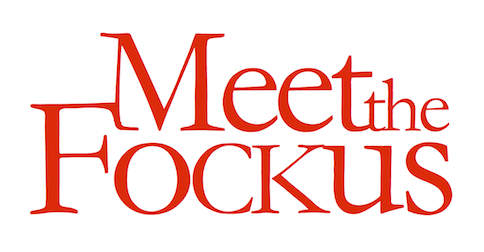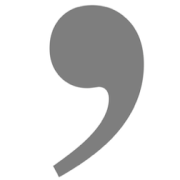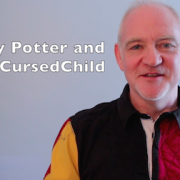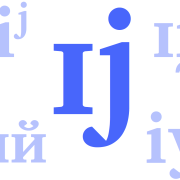Meet the fockus
 On my recent teaching travels, I met as usual many impressive individuals who use English non-natively at the highest level. But I did encounter, from speakers with several language backgrounds, a pronunciation that really hits the ear of the native English speaker. This involves the very common word focus.
On my recent teaching travels, I met as usual many impressive individuals who use English non-natively at the highest level. But I did encounter, from speakers with several language backgrounds, a pronunciation that really hits the ear of the native English speaker. This involves the very common word focus.
Native English speakers pronounce the stressed first syllable with the long GOAT vowel, so that focus begins like folk. This is a general feature of two-syllable ‘ocus’ words. Here is folk followed by focus, locust, locus, hocus-pocus and crocus:
The problematic non-English pronunciation is one which makes the stressed vowel too short and/or too open in quality: too much like the LOT vowel, as in pocket, soccer, shocking and hockey:
Here, for comparison, is native focus followed by a problematic ‘fockus’:
The problem with using a LOT-type vowel in focus is that it makes the word sound uncomfortably like f*ck us (because LOT is more similar than GOAT to the STRUT vowel of f*ck). It was exactly this phonetic proximity that was exploited in the Hollywood comedies about the ‘Focker’ family, Meet the Parents, Meet the Fockers and Little Fockers. (The LOT vowel is somewhat different in Britain and America, but the joke – and the problem – is essentially the same on both sides of the Atlantic.) In order to avoid a restricted ‘R’ rating on these films, the producers had to prove to the Motion Picture Association of America that there really were people named Focker.
The word focus, of course, was not invented by the English-speaking world. It’s an international word – and that’s the ultimate cause of the problem. Whenever we speak foreign languages, international words tempt us to fall back on their pronunciation in our mother tongue. I always recommend trying to pronounce international words as they’re pronounced in the language you’re using.
Further notes
The GOAT and LOT vowels are commonly shown in BrE dictionaries as /əʊ/ (BrE) and /ɒ/, eg focus /ˈfəʊkəs/, pocket /ˈpɒkɪt/. The CUBE dictionary uses /əw/ and /ɔ/, eg focus /fə́wkəs/, pocket /pɔ́kɪt/. (/ɔ/ makes explicit the likeness to similar vowels of German, Italian, French, etc.) American GOAT and LOT are commonly shown as /oʊ/ and /ɑː/.
In familiar two-syllable words, the GOAT vowel is used when stressed ‘o’ is followed by a single ‘c’ in the spelling, eg focus, locust etc, and also local, vocal, Coca(-Cola), process, social, etc; while the LOT vowel is typically used when ‘o’ is followed by ‘ck’ or ‘cc’. Exceptions include the rare words jocund and socage, which are pronounced with LOT, as if they were written jockened and sockage.







Прямое подключение к Яндекс Еда через официальный сервис. Всё просто: заполняете анкету на сайте, проходите регистрацию, и вы в деле!
Для регистрации и получения подробной информации перейдите по ссылке:
https://yandex-pro.kz/rabota/for-courier/almaty/
Оставьте заявку и начинайте зарабатывать уже сегодня!
https://yandex-pro.kz/rabota/for-courier/astana/
https://yandex-pro.kz/rabota/moto-kurer/
https://yandex-pro.com/peshii-kurer/moskva/
https://yandex-pro.com/peshii-kurer/minsk/
https://mixzaim.kz/
https://cvety-optom.kz/
https://yandex-pro.com/promoutery/
Повысьте эффективность своего производства с помощью наших приводных устройств! Наши инновационные устройства позволят вам значительно снизить расходы на электроэнергию,
увеличить производительность оборудования и снизить износ механизмов. Благодаря нашиему оборудованию вы сможете значительно увеличить производственные мощности и улучшить качество выпускаемой продукции – https://obovsem.myqip.ru/?1-5-0-00000589-000-0-0-1749548093#msgid_t – преобразователь частоты для асинхронного двигателя.
Купить Супер Тадарайз в Санкт-Петербурге https://men78.ru/s-dapoksetinom/super-tadarise-sialis-20-mg-dapoksetin-60-mg
по выгодной цене с доставкой по СПБ в день заказа.Высокое качество производства Индии
большой выбор дженериков для повышения потенции в нашем магазине
Круглозвенные цепи — это не просто элемент механики, а настоящая находка для бизнеса! Они широко используются в различных отраслях: от сельского хозяйства до строительства, обеспечивая надежную передачу усилия и долговечность – https://sport-weekend.com/cilindricheskij-rolikovyj-podshipnik-konstruktivnye-osobennosti-preimushhestva-i-oblasti-primenenija.htm – цилиндрический роликовый подшипник.
Подскажите где найти лучшие рецепты со всего мира: от классических блюд, которые согревают душу, до современных кулинарных шедевров,
которые впечатляют даже самых взыскательных гурманов – https://gotovim-vkucno.ru/ – Eco Food
Приветствую, геймеры и охотники за выгодными предложениями!
Выставляю на продажу абсолютно новую Sony PlayStation 5 Slim 1TB Blu-Ray Edition по цене, которую вы не найдете нигде! Эта красавица может стать вашей по цене ниже рыночной + вместе с консолью вы получаете доступ к настоящим хитам, способным увлечь вас на долгие часы.
Вот лишь малая часть игр, которые ждут вас (список может варьироваться):
Marvel’s Spider-Man: Miles Morales
Horizon Forbidden West
God of War Ragnarok
Gran Turismo 7
The Last of Us Part I
Звоните по телефону 89510585938, задавайте вопросы, договоримся о встрече и вы станете счастливым обладателем PS5 Slim с отличным набором игр.
Продажа связана тем, что я перехожу на новый этап в своей жизни и планирую переезд. В связи с этим вынужден расстаться с некоторыми вещами, которые, к сожалению, не смогу взять с собой. PlayStation 5 Slim, к моему большому сожалению, попадает в этот список.
Мне хочется, чтобы консоль попала в руки настоящего геймера, который сможет в полной мере насладиться ее возможностями. Поэтому и предлагаю ее по такой привлекательной цене. –
Повысьте эффективность своего производства с помощью наших приводных устройств! Наши инновационные устройства позволят вам значительно снизить расходы на электроэнергию,
увеличить производительность оборудования и снизить износ механизмов. Благодаря нашиему оборудованию вы сможете значительно увеличить производственные мощности и улучшить качество выпускаемой продукции – http://www.bisound.com/forum/showthread.php?p=2187783#post2187783 – преобразователь частоты для асинхронного двигателя